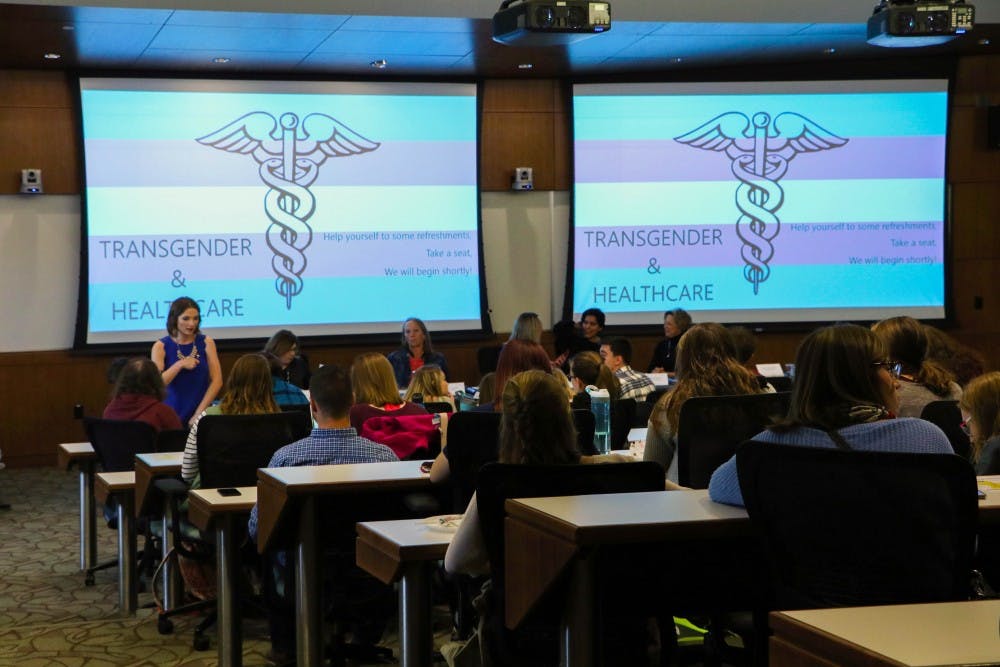Panel brings awareness to issues in transgender healthcare

The LGBTQ Student Interest Group (SIG) of the College of Medicine presented a panel confronting the healthcare obstacles and needs for members of the transgender community, Friday Sept. 29.
Nearly 125 students filled the college’s auditorium in as an eight-member panel covered terminology, hormone treatment and the transitioning procedure in an open, judgement-free discussion.
The LGBTQ SIG was founded in 2015 by two medical students. It continues to expand its membership and aims to advocate for LGBTQ patients both within and outside of the healthcare system.
“We’ve been making a lot of efforts to educate people on LGBTQ healthcare, health risks and different quirks that are involved with treating the LGBTQ population,” said SIG president Jason Lafave, a second year medical student from Escanaba.
Lafave said the goal of the panel was for future healthcare providers to learn more about a unique population in a respectful and education-focused environment.
“(Transgenderism) gets treated like a gatekeeper, so much that it’s not even about treating us, it’s all about jumping through the hoops to get through these different stages,” said panelist Marisa Massaria, a transitioned female.
Massaria said demands for passing psychological exams and misconceptions on hormone resources served as yellow tape for efficiently completing her procedure.
“All of these are gatekeepers that hold you back and make it so much harder than what it needs to be,” She said.
Panelists Dr. Julia Stevens, a family practitioner with an emphasis on transgender healthcare and resources and Diane Schultz, a transitioned woman and former police officer said that restrictions brought on by age and family confront can destruct an individual’s ability to transition.
“Many of the people who I take care of (when) I first meet them are either treated (for) depression or anxiety,” Stevens said, “Once hormonal treatment is started the anxiety, depression, insomnia or other mental health issues decrease because they are working towards their true self.”
Stevens said treatments vital transitioning are vital for personal growth and mental stability for those who decide to take the procedural route to matching their true identity.
“Wouldn’t you do anything you can to align your body with who you really are?” Schultz said. “That’s the way most transgender people feel, that’s the position we are in.”
Issues that take place between transgender patients and the healthcare system arise from addressing identity and factors, the panel said.
For example, the panel acknowledged reoccurring cases of doctors asking transitioned females about their menstrual cycles or still addressing them by their birth-assigned pronouns. Schultz and Massaria shared another situation in which a doctor was illegally issuing out a transgender woman’s breast examination reports with the excuse of there being limited resources for transgender breast care.
Katelyn Massaria, a Lexington junior and one of the panel’s organizers, said that one of the main purposes of the event was to keep such incidents from occurring again with a new generation of healthcare providers.
“We’re really focus on educating those in attendance on how to really provide the best care possible for those future patients,” she said.
Other panelists included were trained physician and Oakland University doctoral student Fiona Fonseca; Oakland University mental health advocate and specialist Diane Johnston and Licensed Master Social Worker (LMSW) Deanna Heath.





